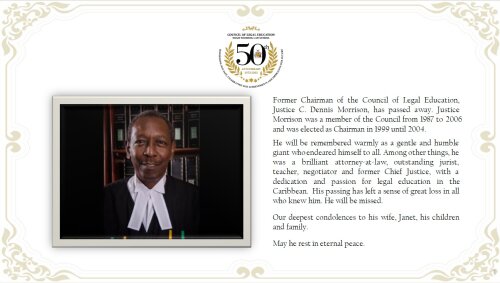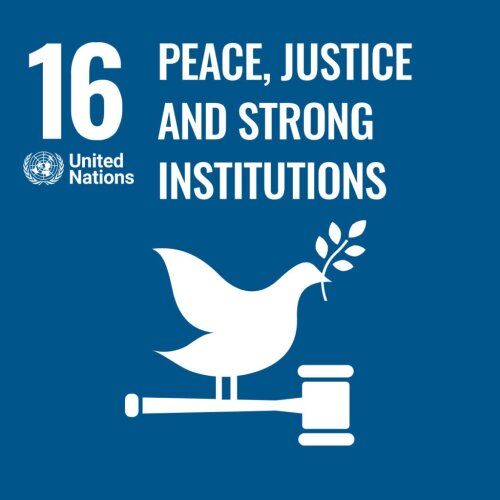Best DUI & DWI Lawyers in Trinidad and Tobago
Share your needs with us, get contacted by law firms.
Free. Takes 2 min.
Or refine your search by selecting a city:
List of the best lawyers in Trinidad and Tobago
About DUI & DWI Law in Trinidad and Tobago:
DUI stands for Driving Under the Influence, while DWI stands for Driving While Impaired. Both offenses involve operating a vehicle while under the influence of alcohol or drugs. In Trinidad and Tobago, the legal blood alcohol content (BAC) limit is 35 micrograms of alcohol per 100 milliliters of breath. If you exceed this limit, you can be charged with a DUI or DWI offense.
Why You May Need a Lawyer:
You may need a lawyer if you have been charged with a DUI or DWI in Trinidad and Tobago. A lawyer can help you understand your legal rights, navigate the legal process, and potentially reduce the penalties or consequences associated with your offense. Additionally, a lawyer can represent you in court and advocate on your behalf.
Local Laws Overview:
In Trinidad and Tobago, the penalties for a DUI or DWI offense can include fines, license suspension, and even jail time. It is important to note that Trinidad and Tobago takes drunk driving offenses seriously, and the legal system can be complex. It is crucial to seek legal advice if you have been charged with a DUI or DWI to ensure the best possible outcome for your case.
Frequently Asked Questions:
1. What are the penalties for a DUI or DWI in Trinidad and Tobago?
The penalties for a DUI or DWI in Trinidad and Tobago can include fines, license suspension, and even jail time, depending on the circumstances of the offense.
2. Can I refuse a breathalyzer test in Trinidad and Tobago?
Refusing a breathalyzer test in Trinidad and Tobago can result in additional penalties, including license suspension. It is generally advisable to comply with law enforcement when requested to take a breathalyzer test.
3. How can a lawyer help me with my DUI or DWI case?
A lawyer can help you understand your legal rights, navigate the legal process, and potentially reduce the penalties associated with your DUI or DWI offense. They can also represent you in court and advocate on your behalf.
4. Can I represent myself in court for a DUI or DWI case?
While you have the right to represent yourself in court, it is generally advisable to seek legal representation for a DUI or DWI case. An experienced lawyer can help you navigate the legal system and achieve the best possible outcome for your case.
5. Are there any defenses available for a DUI or DWI charge in Trinidad and Tobago?
There are potential defenses available for a DUI or DWI charge in Trinidad and Tobago, such as challenging the accuracy of breathalyzer test results or arguing improper police procedure. A lawyer can help you explore these defenses and determine the best strategy for your case.
6. How long does a DUI or DWI charge stay on my record in Trinidad and Tobago?
A DUI or DWI charge can stay on your record for a significant amount of time in Trinidad and Tobago, potentially affecting your future employment opportunities or travel plans. It is essential to seek legal advice to understand the implications of a DUI or DWI charge on your record.
7. Can I plea bargain for a lesser charge in a DUI or DWI case in Trinidad and Tobago?
Plea bargaining for a lesser charge in a DUI or DWI case is possible in Trinidad and Tobago, but it is crucial to have legal representation to negotiate the best possible outcome for your case. A lawyer can help you explore plea bargain options and advocate on your behalf.
8. What should I do if I have been arrested for a DUI or DWI in Trinidad and Tobago?
If you have been arrested for a DUI or DWI in Trinidad and Tobago, it is essential to remain calm, comply with law enforcement, and seek legal advice as soon as possible. A lawyer can help you understand your rights and navigate the legal process effectively.
9. How can I find a reliable lawyer for my DUI or DWI case in Trinidad and Tobago?
You can find a reliable lawyer for your DUI or DWI case in Trinidad and Tobago by seeking recommendations from friends or family, researching online, or contacting the local bar association for referrals. It is essential to choose an experienced lawyer with a track record of success in DUI and DWI cases.
10. What are my rights during a DUI or DWI arrest in Trinidad and Tobago?
During a DUI or DWI arrest in Trinidad and Tobago, you have the right to remain silent, the right to legal representation, and the right to refuse to answer questions without a lawyer present. It is essential to understand your rights and seek legal advice to protect your interests during the legal process.
Additional Resources:
For additional resources related to DUI and DWI in Trinidad and Tobago, you can contact the Trinidad and Tobago Police Service, the Ministry of National Security, or local legal aid organizations for assistance and information.
Next Steps:
If you need legal assistance for a DUI or DWI case in Trinidad and Tobago, it is essential to contact a qualified lawyer as soon as possible. A lawyer can help you understand your rights, navigate the legal process, and achieve the best possible outcome for your case. Do not hesitate to seek legal advice and representation to protect your interests and rights during this challenging time.
Lawzana helps you find the best lawyers and law firms in Trinidad and Tobago through a curated and pre-screened list of qualified legal professionals. Our platform offers rankings and detailed profiles of attorneys and law firms, allowing you to compare based on practice areas, including DUI & DWI, experience, and client feedback.
Each profile includes a description of the firm's areas of practice, client reviews, team members and partners, year of establishment, spoken languages, office locations, contact information, social media presence, and any published articles or resources. Most firms on our platform speak English and are experienced in both local and international legal matters.
Get a quote from top-rated law firms in Trinidad and Tobago — quickly, securely, and without unnecessary hassle.
Disclaimer:
The information provided on this page is for general informational purposes only and does not constitute legal advice. While we strive to ensure the accuracy and relevance of the content, legal information may change over time, and interpretations of the law can vary. You should always consult with a qualified legal professional for advice specific to your situation.
We disclaim all liability for actions taken or not taken based on the content of this page. If you believe any information is incorrect or outdated, please contact us, and we will review and update it where appropriate.
Browse dui & dwi law firms by city in Trinidad and Tobago
Refine your search by selecting a city.











